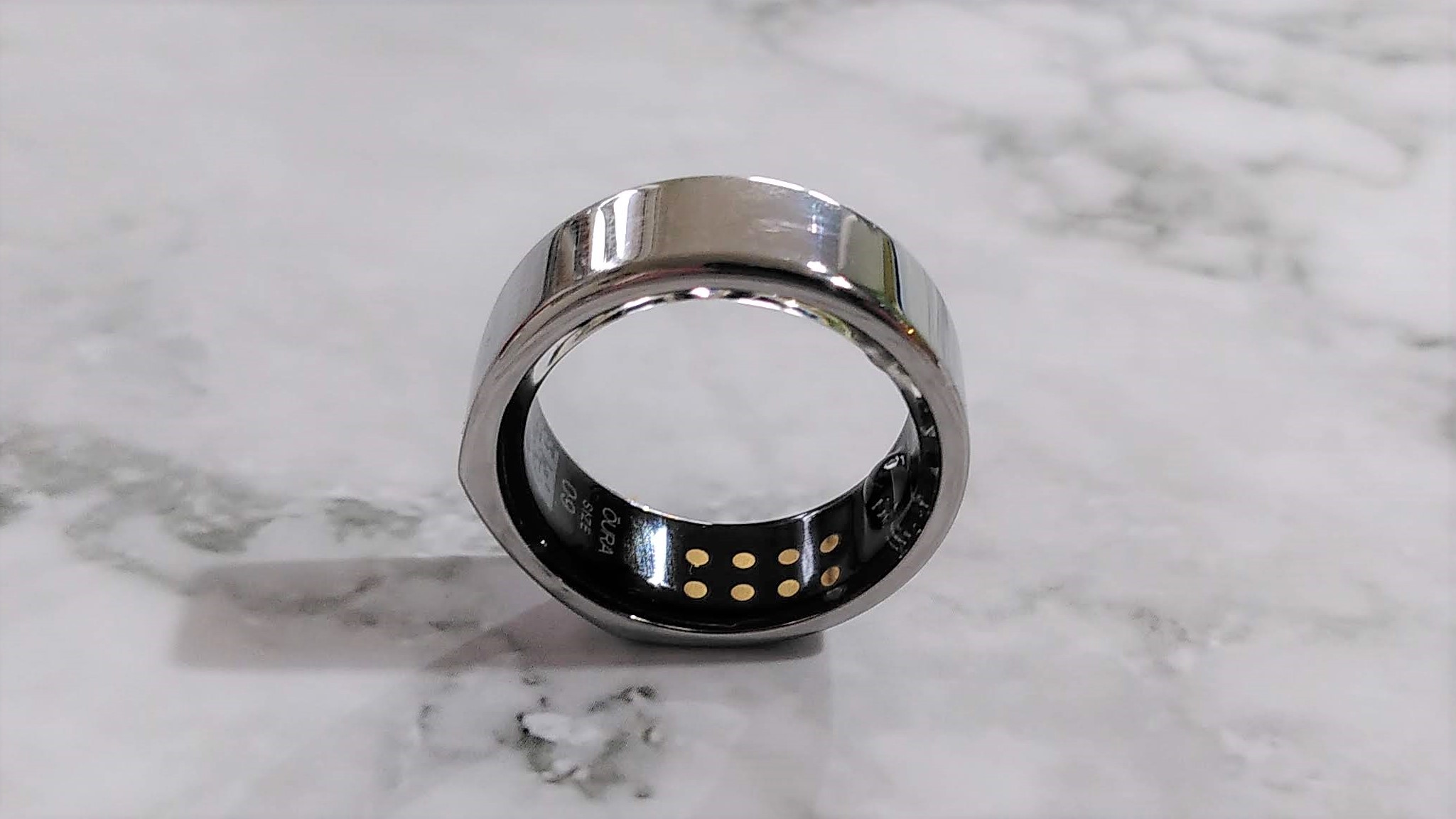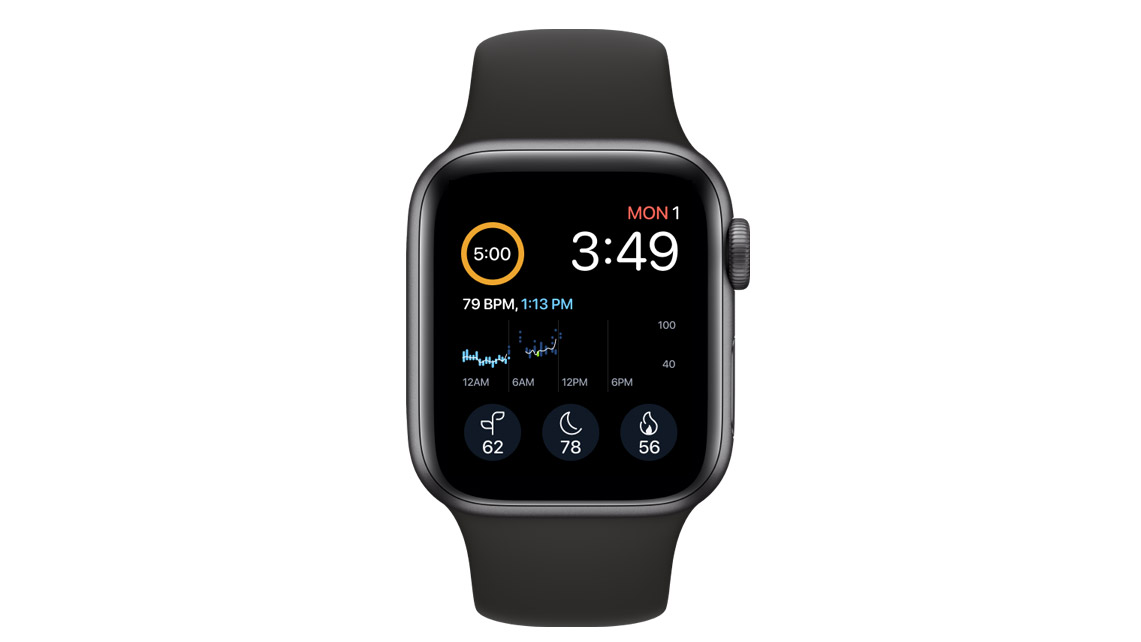Apple Watch owners' next must-have gadget is a sleep-tracking smart Oura Ring
The Oura Ring now interfaces with Apple Watch

In a world in which you can get smart versions of almost anything, from speakers and watches to water bottles and running shoes, I find smart rings particularly fascinating. In some ways, they're the perfect wearable – unobtrusive, stylish and able to seamlessly blend with the rest of your outfit. However, they're far too small to pack a screen, so all the data it collects is only available in the corresponding app.
Out of all the smart ring offerings available right now, the Oura Ring is the best-known and most adopted, topping our list of the best sleep trackers. The Oura Generation 3 is a solid wellness tracker geared towards monitoring sleep and stress rather than pure fitness, with seven temperature sensors monitoring your 'restorative time', an updated heart rate sensor, and a readiness score just like Garmin or Fitbit.
The Oura Ring is a screenless wearable like most other smart rings, a chunky yet pretty ring designed to be worn on the forefinger. Of course, not having a physical screen means you have to open up the app to see your statistics – unless, that is, you're an owner of one of the best Apple Watches.
You might question what the point of owning two wellness-orientated wearables might be, but Oura has done its best to integrate itself into Apple's health economy. It's introduced several new functions, including an Oura app for watchOS, which allows you get all your details and health data on-wrist, including Sleep, Readiness, and Activity data. You can also add Oura metrics to your watch face.
On iOS 16 and higher, Oura has also introduced widgets that allow you to view your Oura stats on your home screen. These widgets are customizable, and are able to show your Sleep score, Readiness score, Activity score, ring battery level, activity goal progress, daily movement, body-temperature graph, and heart-rate graph.

So, why should Apple Watch users consider spending more money on an Oura Ring, even though they already have a perfectly good wearable? For some users, it's going to be a matter of constant monitoring, battery life, and how you use your watch.
If you charge your watch overnight (which is likely if you're a power user, unless you have something with longer battery life such as the Apple Watch Ultra) you're not using your Apple Watch's sleep tracking capabilities, as you won't have the watch on you all the time.
Sign up for breaking news, reviews, opinion, top tech deals, and more.
The Oura Ring can help plug those gaps, as it's much easier to wear comfortably overnight and means you can continue feeding Apple Health information without being tethered to your watch. Its up-to-seven-days battery life is much better than the 18 hours Apple provides, or 36 hours if you're an Apple Watch Ultra user.
Oura Rings also track data the Apple Watch doesn't. Apple Watches don't provide recovery metrics in the way Fitbit and Garmin do, so using an Oura Ring in conjunction with your Apple Watch allows you to see how ready you are for your next long run. As well as the aforementioned 'restorative time', which looks for absences of stress signifiers, Oura can even monitor the time you spend in bed versus the time you actually spend asleep. It's a very sophisticated piece of kit, albeit a very specialized one.
Apple Watches, on the other hand, are generalist pieces of tech. They are great for staying connected, reading notifications, emails, and other messages on the go, monitoring specific workouts, and loads more: there's a very good reason it's perhaps the most popular brand of smartwatch on the market.
Its poor battery life does hamper its wellbeing-monitoring capabilities, but if you can afford the pricey Oura subscription, the ring effectively uncouples the wellness aspect from the physical watch, so it still logs your data even while the watch is on charge.
For a certain section of users, this new integration will make the Oura Ring a must-buy. Others might not like the idea of constant sleep tracking, such as the sleep expert I interviewed about the usefulness of fitness watches.

Matt is TechRadar's expert on all things fitness, wellness and wearable tech.
A former staffer at Men's Health, he holds a Master's Degree in journalism from Cardiff and has written for brands like Runner's World, Women's Health, Men's Fitness, LiveScience and Fit&Well on everything fitness tech, exercise, nutrition and mental wellbeing.
Matt's a keen runner, ex-kickboxer, not averse to the odd yoga flow, and insists everyone should stretch every morning. When he’s not training or writing about health and fitness, he can be found reading doorstop-thick fantasy books with lots of fictional maps in them.